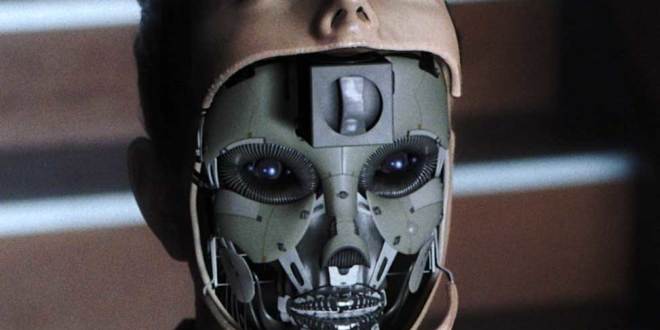The invention of machines that can think as well as humans is a subject that can rub people the wrong way. People like to think that they are the only things in the world with higher intelligence and therefore truly unique and in control of their lives. If a machine were to have the same powers of comprehension and creativity and the same notions of progress and self-preservation that humans do, then the human race might just have to settle for being number two. This debate for or against the creation of artificial intelligence (AI) branches into many areas, from the moral to the practical to the emotional.
Is Creating AI the “Right” Thing to Do?
There are many practical advantages to having a machine with human-level intelligence. By creating a new form of life, humanity would be able to study life in a broader sense. No longer would scientists be restricted by the study of earthly, carbon-based life forms. They could study the basis of life and not just the forms.
AI (as long as it is friendly) has the potential to answer questions that humans have concerning the nature of self-awareness and consciousness. Artificial intelligence may understand more than we do about what is at the core of life and how it comes to act independently and creatively. Many of those with religious leanings have concerns about “playing God” when it comes to developing another sentient being. Although these arguments have little to do with a rational debate, they are still of great concern to a major portion of the population.
AI could also act as a sort of hyper-intelligent being with a vested interest in helping humanity to solve its more serious problems. If AI developed the human trait of empathy then it would be in the best interests of both man and machine to find answers to issues such as environmental collapse, the cycle of human violence, poverty, world hunger, disease, old age and a host of other problems that have plagued humanity for thousands of years or more. Given the examples of neural networks creatively solving problems that humans cannot, the possibility of them being able to tackle global issues is feasible given an increase in intelligence.
Will AI Destroy or Enslave Humanity?
An intelligent being, smarter than any human, with creative ability and the instincts of self-preservation and self-interest that come with consciousness is a scary prospect. If this being were to decide it had a goal to accomplish and that, by its calculations, human beings were detrimental to its goal, the ramifications to civilization could be unhealthy to say the least.
The counter-argument to this speculation is that if a machine developed its own consciousness then it would also, by default, develop empathy for other living beings. Considering humankind’s own level of empathy toward its fellow humans, this could be either wonderful or incredibly devastating. There is no way to know what sorts of human-like flaws are intrinsically connected to consciousness in general. A thinking machine with an intelligence level far above us would almost certainly act in a way completely foreign to what we expect from an intelligent being. Even at low levels artificial neural networks (ANNs) and genetic algorithms often make decisions that have correct results but no understandable pattern. The sorts of decisions that an intelligent machine would make and the reasoning behind them might be beyond a human’s ability to comprehend.
Abusing AI
More rational fears of artificial intelligence stem from speculations of which people or networks would control it and to what purpose it would be put. The most common fear is that those in positions of power would use AI as a weapon against other countries in order to gain global dominance. Something with advanced intelligence and the goal of destroying a nation’s economic structure could be incredibly destructive. Alternately, AIs could be used in robotic forms as a type of super-soldier in the more traditional type of warfare. Military organizations are already one of the chief funding sources for AI development, which lends even more weight to this concern. If the military funds the research then what sorts of applications will the money be going toward first?
AI as Judge of Human Sins
Humans learn most often from the sensations of pleasure and pain. This is how people figure out at a young age to keep their hand out of the fireplace and that soft things are pleasant to the touch. If this type of learning can be simulated within an AI, will it create human-like judgments as to the beneficial or harmful nature of the objects around it and will this translate as well to the actions that human beings take? Would the AI then decide that humankind was not worthy to live because of people’s tendency to do hurtful things to other sentient beings? Or, worse yet, would the thinking machine learn the cynical lesson that it is OK to do harmful things to other people as long as they have no way to retaliate?
Until AI is closer to being within reach, there is no way to know how it could possibly react. Humans have a very limited knowledge and wisdom concerning the world around them, no matter how hard they study and how long they learn. When artificial intelligence comes about it will be another technology that is only partially understood, like the atomic bomb in the 1940s. The hope is that it will not be as destructive.
Parental Anxiety
When the first artificially intelligent creature comes into being and asks “What am I?”, what response could people give that would answer its question? Humanity knows so little about itself that to presume to create a life with no knowledge of what is necessary to nurture it properly causes a great deal of anxiety in many. What kind of parents would humans be to their new, electronic baby? Would it be raised to be kind, understanding and helpful or callous, vicious and cruel? These opinions raise concerns for people, but the rearing of children without knowledge of the essence of existence has been going on since the dawn of humanity. AI would only be another form of child, one that people could learn from as well as teach.
AI and Lawyers
Finally, the issue of artificial intelligence comes down to a more complicated issue. Beyond the fear of death from intelligent machines, beyond the moral dilemmas and beyond the anxiety of not knowing or understanding lies this question: “If a machine was proved to think and feel as humans do, would it then gain all the rights of a living being?”
Many would wish to confine the AI to a life of servitude, as a master unto a servant. From a certain perspective this even seems like the safer route to take, inserting blocks and kill-switches to make sure that it never gets out of control. But if human beings truly value life then should not the AI be given all the same legal rights that human beings have?
A Final Word
Artificial intelligence, another living creature coexisting with humanity, would be a truly unique experience in the history of humankind. The only examples there are of what may potentially happen come from historical interactions that have taken place between different races and religions, none of which began peacefully and most of which took hundreds of years to resolve themselves. The hope is that people will learn from past mistakes and the new form of life will find itself accepted by the old form. The potential is too great for human beings to fail at this task of showing their humanity to what may very well hold the future of the human race in its mechanical hands.
 Mind Gem
Mind Gem

